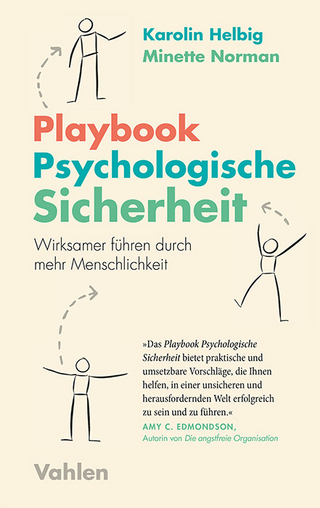
Stress
Wiley-Blackwell (Verlag)
978-1-4051-0744-0 (ISBN)
Stress: A Brief History is a lively, accessible, and detailed examination of the origins of the field of stress research.
First concise, accessible, academically grounded book on the origins of the concept of stress.
Explores different theories and models of stress such as the psychosomatic approach, homeostasis, and general adaptation syndrome.
Discusses the work and intriguing contributions of key researchers in the field such as Walter Cannon, Hans Selye, Harold Wolff, and Richard Lazarus.
Explains the origins of key concepts in stress such as stressful life events, the coronary-prone personality, and appraisals and coping.
Culminates in a discussion of what makes a good theory and what obligations stress researchers have to those whose working lives they study.
Cary L. Cooper is Professor of Organizational Psychology and Health at the Manchester School of Management. He is the author of over 100 books, as well as senior co-editor of the Blackwell Encyclopedia of Management (12 volumes, with Chris Argyris). He has been an advisor to the World Health Organisation, two UN bodies, and the International Labor Organisation. Philip Dewe is Professor of Organizational Behaviour and Head of the Organizational Psychology Department at Birkbeck College. He is the author of numerous books and articles, including Organizational Stress (with Cary L. Cooper and Michael P. O’Driscoll, 2001) and Coping, Health and Organisations (edited with Tom Cox and Michael Leiter, 2000).
Acknowledgements. 1. From Early Beginnings to the 20th Century.
Introduction.
Hooke’s Law and the Engineering Analogy.
The 18th Century and Beyond.
Summary of Themes from the 18th and 19th Century.
2. The 20th Century – The Early Years.
The Emergence of the School of Functionalism.
Fatigue and Mental Hygiene.
Psychosomatic Medicine and the contribution of Walter Cannon.
Hans Selye.
The Concept of Non-Specificity.
General Adaptation Syndrome.
Eustress, Distress, Overstress and Hyperstress.
Physiological Aspects of Stress.
The Work of Harold Wolff.
The Protective Reaction.
Summary of the First half of the 20th Century.
3. From the 1950s to Richard Lazarus.
Stress in the 1950s and 1960s.
Stressful Life Events.
The Social Readjustment Scale.
Daily Hassles and Uplifts and the Debate that Followed.
The Debate: Critical Life Events Versus Hassles and Uplifts.
Personality and Type A Behavior Patterns.
Towards the Study of Individual Differences.
A Return to the 1950s and 1960s and a change in Focus.
The History of Stress in Sweden.
The Origins of Organizational Psychology.
The Rise of Ergonomics/Human Factors.
Summary.
4. The Work of Richard Lazarus.
Introduction.
The Beginnings.
The Berkeley Stress and Coping Project.
A Historical Look at Appraisal.
The Nature of Appraisals and the debate that Followed.
Lazarus and the process of Coping.
Ways of Coping Questionnaire.
Lazarus and Emotions.
Summary.
5. Work Stress and Occupational Health Psychology.
Introduction.
Work Stress.
Role Conflict, Role Ambiguity and the Search for Causes of Work Stress.
Beyond Role Conflict, Ambiguity and Overload.
Early Research Frameworks and Identifying Strains.
Toward an Integrated Model of Work Stress.
Work Stress and Coping.
From Coping to the Self Help Years to Stress Management.
Occupational Health Psychology.
Post Traumatic Stress Disorder.
Summary.
6. What Do We Mean by Stress: From the Past to the Future.
Introduction.
From the Past to the Future.
What does History add to Our Understanding of Stress?.
Searching for the Organizing Concept of the future.
Distinguishing Between Description and Meaning.
Why Stress? Fulfilling Our moral Responsibility.
References.
Index.
| Erscheint lt. Verlag | 13.4.2004 |
|---|---|
| Reihe/Serie | Blackwell Brief Histories of Psychology |
| Verlagsort | Hoboken |
| Sprache | englisch |
| Maße | 200 x 250 mm |
| Gewicht | 340 g |
| Themenwelt | Geisteswissenschaften ► Psychologie ► Arbeits- und Organisationspsychologie |
| Medizin / Pharmazie ► Medizinische Fachgebiete ► Psychiatrie / Psychotherapie | |
| Wirtschaft ► Betriebswirtschaft / Management ► Planung / Organisation | |
| ISBN-10 | 1-4051-0744-8 / 1405107448 |
| ISBN-13 | 978-1-4051-0744-0 / 9781405107440 |
| Zustand | Neuware |
| Haben Sie eine Frage zum Produkt? |
aus dem Bereich


